As a Northern Virginia homeowner, you probably have at least one person in your neighborhood or on your street who claims to be a lawn expert.
He’s always outside on his riding lawn mower, surveying his grass. He’s always talking about the best mower and fertilizer brands. He claims to know everything about lawn care – at least that’s what he thinks.
We all have these neighbors who speak rather authoritatively on a subject, claiming expertise. But does he really know what he’s talking about?
The truth is there are many lawn care myths out there, especially during winter. The practice of lawn care has been around for quite awhile, so it’s natural that you’d find some inaccuracies.
And as you sift through all of the information, it can be hard to distinguish fact from fiction. We’re here to help you sort it all out … and help you teach that neighbor of yours a thing or two.
As you approach winter lawn care in Virginia, let’s clear up some of the main winter lawn care myths you might be hearing so you can better understand how your grass works during these colder months.
Winter Lawn Care Myths in Northern Virginia
You want accurate lawn care facts so you can take care of your lawn properly – all year long.

You might even be wondering how the cold and wet winter weather impacts your lawn. After all, you feel the bitter cold on yourself, which is why you’re adding the layers – hats and coats and gloves – to stay warm.
Here are some of the most common winter lawn care myths we hear.
1. You Don’t Need Lawn Care in Winter
Most people only think about their lawn in spring and summer. They wait for it to come back and green up and revive itself as winter melts away.
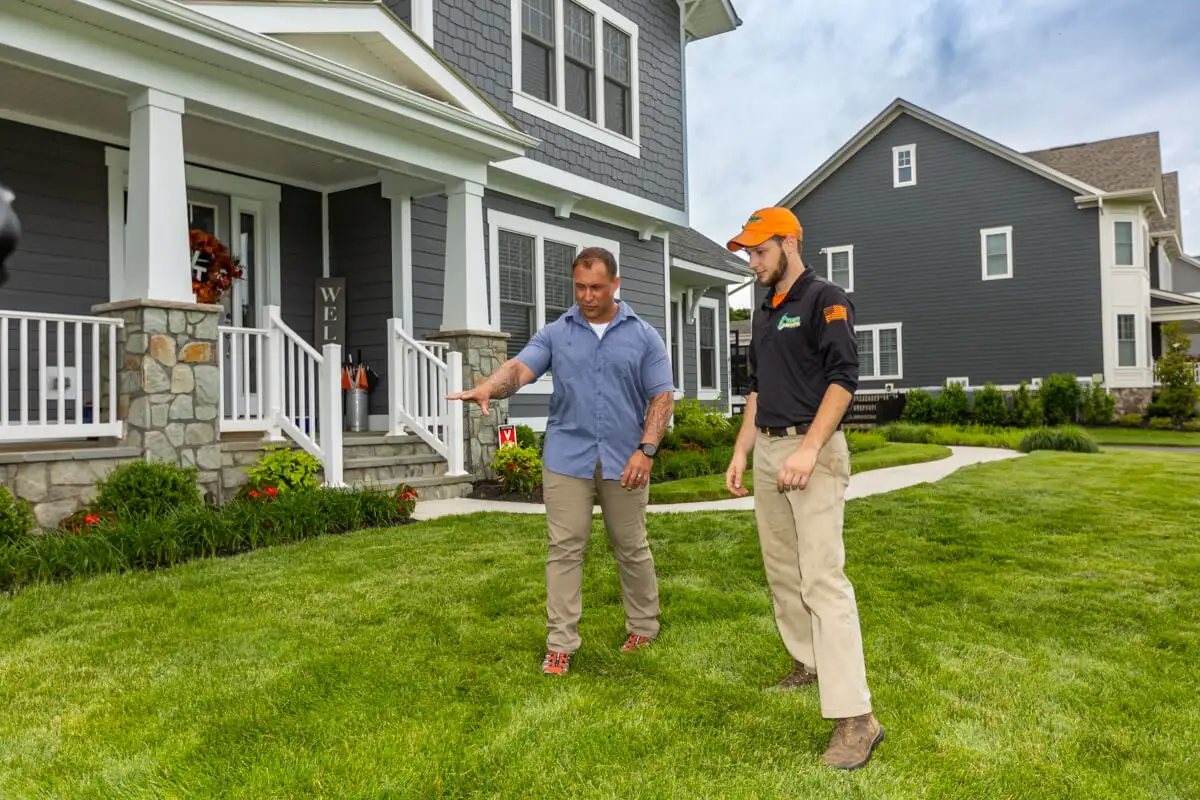
But if you want this great, green, lush lawn in spring, it’s a lawn care fact that you have to give your lawn attention during the fall and winter. And, you might not know this, but there’s actually a lot to do in fall and winter for your lawn. You can clean up debris, mulch or remove leaves, and weed.
You don’t want to ignore your lawn any time of the year.
2. Grass Dies in Winter
Sure, you won’t see active growth from your lawn in winter, but your grass isn’t dead.
Late fall and winter are known as the dormant period for your grass. This means your lawn is hibernating while it waits for spring to return.
When your lawn reaches a certain temperature it will stop producing new blades. Then when temperatures warm up again, it’ll resume new growth. And we’re not talking about air temperatures; we’re talking about soil temperatures. It’s a lawn care fact that dormancy usually happens in Virginia’s tall fescue lawns when soil temperatures drop to below 50 degrees Fahrenheit.
3. I Should Mow My Grass High To Protect It Over Winter
During the growing season, it’s a lawn care fact that mowing to a 3.5- to 4-inch height is ideal for your tall fescue grass.
But when you make that final mow just before winter, you should cut your lawn to a 2.5 inch height. This helps protect it from getting turf diseases, such as snow mold. And if you cut it too short, the cold weather could stress your grass further.
4. It’s OK to Let the Fall Leaves Stay On My Lawn Over Winter
Just like you need extra layers to stay warm in winter, you might wonder if your grass would be more protected with an extra layer of insulation from fall leaves to keep it from frost and snow and ice.
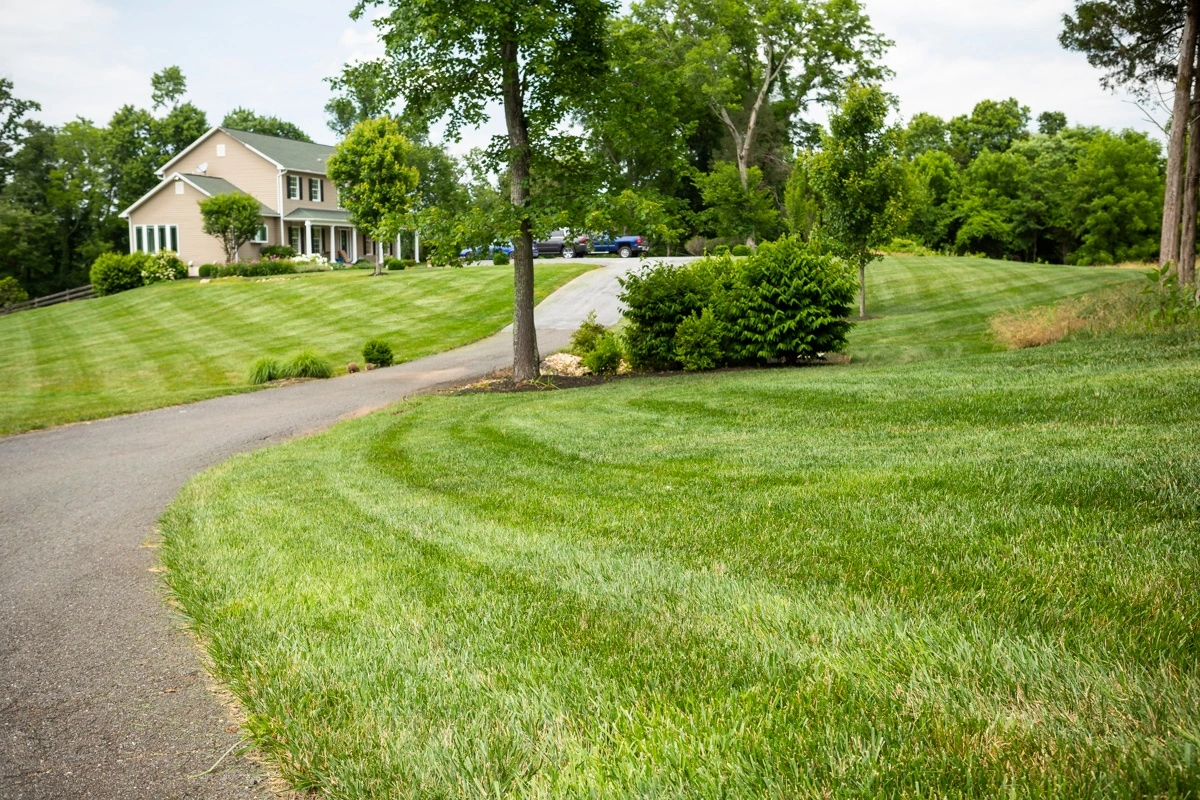
Unfortunately, this is a lawn care myth. Letting those leaves stay on your grass can smother it and even kill it.
Raking your leaves might be tough, especially if you have a lot of trees, but you can also use a mulching mower to mulch them up so that they are broken down. This can supply your lawn with some micronutrients by recycling organic matter back into your soil.
5. Snow Isn’t Good For Your Lawn
Snow may not look like it’s great for your grass, but it actually isn’t so bad for it.
In fact, it’s a winter lawn care fact that snow can insulate grass in winter, it can provide moisture for the soil, and it can prevent water loss.
6. I Only Need to Fertilize My Lawn in Spring
Fertilization in the spring is great, but that’s not the only time it’s important. And only fertilizing once a year can be detrimental to your lawn’s health as it goes into the growing season.
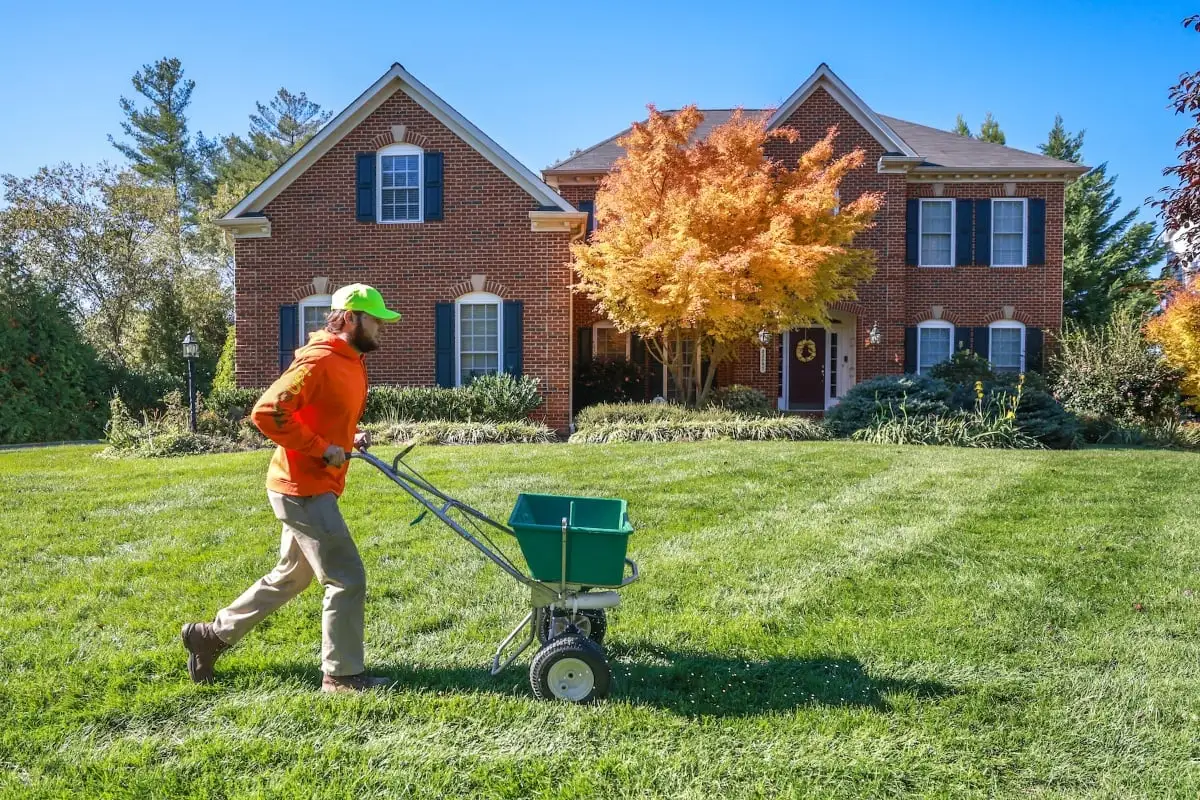
It’s a lawn care fact that you want to fertilize at an even rate throughout the year to maintain nutrient levels without promoting excess top growth and encouraging diseases. You want just enough fertilization to give your lawn color and growth, and you want to adjust it throughout the year based on the weather conditions and each specific period of your lawn’s growth.
Fall fertilization is essential for your lawn’s root growth. Getting in that last fertilization before winter is what helps your lawn build a better root system so it can be thick and green and healthy come springtime.
7. Water Your Lawn Every Day
Many people think they should water about 15 minutes in the morning and evening everyday for optimum irrigation on their lawn.
This lawn care myth is actually counterproductive to lawn health. First of all, when you water like this, the water doesn’t penetrate deep into the soil, meaning you’re not encouraging deep lawn root growth. Second, it’s just unnecessary to water that often. Third, at 15 minutes, you might barely be getting the soil wet, and once that sun hits, the moisture evaporates fast.
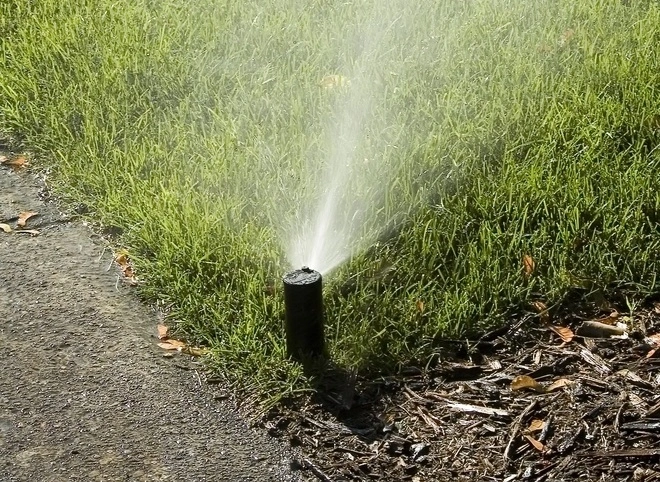
The optimum watering frequency is actually a couple of times a week for a longer duration. Ideally this means one hour per zone, two-to-three times per week. This ensures water gets down into the root area, encouraging a stronger growing plant. And watering grass at night is not a great idea because it encourages lawn disease. Watering in those early morning hours before the sun is fully out and above is ideal.
Your lawn really only needs 1.5 inches of water per week, which includes rainfall. This is why you don’t need to water in winter because the snow will provide enough water to your grass plants at this time of the year.
8. DIY Lawn Care Saves Money
As you walk through a home improvement store, you’ll see many lawn care products. You might even be able to get comparable products like those that professionals use.
Then, you’ll need a good granular spreader and a proper sprayer. Remember to calibrate it before each use based on the products you’re using.
Now, you’ll need to dive into the knowledge of lawn care basics, read your product label instructions, learn efficient application techniques, and put it all together to keep your lawn thriving through any challenges along the way.
If you’re willing to accept the challenge, we applaud you. But you should know that DIY lawn care usually doesn’t save you money once you add everything together – the most important element being your time. How much is one hour of your time worth?
Learning a new skill can make you feel accomplished, but you should know it’s a lawn care myth that you’ll save money doing DIY lawn care.
Trust Turf’s Up For Winter Lawn Care in Northern Virginia
So, it’s a lawn care myth that the cold winter months will destroy your lawn.
Your grass is ready to hibernate in winter, and if you take care of it the rest of the year, you can ensure it has a restful winter full of recovery.
Also, by investing in a complete, proactive lawn care program that includes winter lawn care, as well as proper care the rest of the year, you can continue to improve your lawn, keeping it looking its best all year long.
Wondering if your lawn is ready for winter? Give Turf’s Up a call. We can create a program for your lawn so that your soil gets the nutrients it needs to create thick, green grass with fewer weeds and bare spots. Then all you have to do is enjoy the winter and holiday season, knowing lawn care is off your worry list.
Ready to learn why Turf’s Up could be your totally awesome choice for lawn care services in Leesburg, Ashburn, and Aldie, VA? We’re stoked to learn more about you and help you have the best lawn on the block. Get started today with a free quote. Together, we can prepare a customized plan that is perfect for you and your lawn.
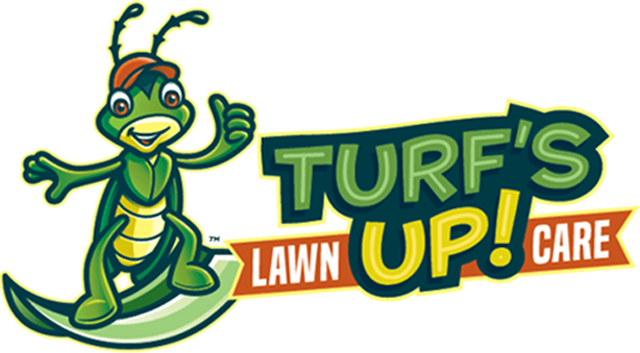
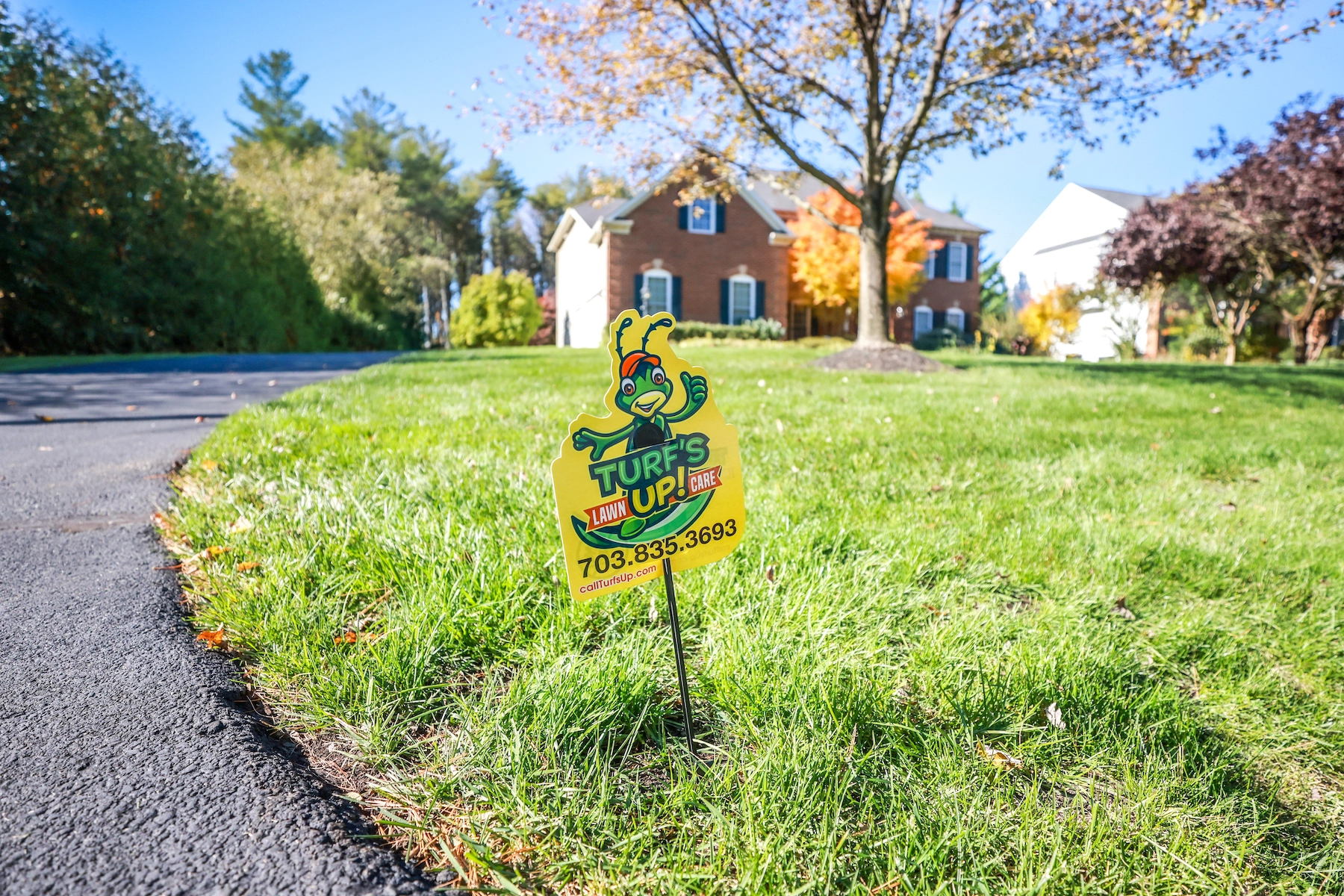




Comments (0)
Thanks for your comment!
Thanks for your feedback! Your comments have been successfully submitted! Please note, all comments require admin approval prior to display.
Error submitting comment!
There is a problem with your comment, please see below and try again.